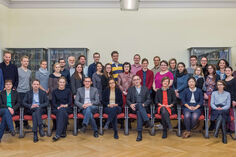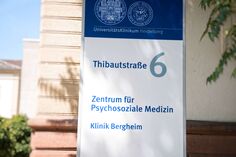Characterizing psychomotor dysfunction and related neural networks in schizophrenia and depression: a transdiagnostic systems neuroscience approach
Staff
Dipl.-Biol. Dr. sc. hum.Mike Schmitgen
Dr. med. Nadine D. Wolf
Prof. Dr. med. Robert Christian Wolf
Collaboration partners
Central Institute of Mental Health (CIMH), Mannheim, Germany
Department of Neuroradiology, University Hospital Heidelberg, Germany
Funded by: Deutsche Forschungsgemeinschaft (DFG)
Description
Schizophrenia (SZ) and major depressive disorder (MDD) are common and severe mental disorders that constitute an extraordinarily high public health burden. To facilitate the development of effective, individualized therapeutic interventions, robust biomarkers are needed that index specific functional deficits relevant for a given patient. Among these, psychomotor abnormalities represent a core clinical feature with transdiagnostic importance in SZ and MDD, but their relevance for individualizing therapeutic options remains unexplored. Psychomotor functioning is defined through the interaction of primary sensorimotor function (e.g., the dopaminergic-based subcortical-cortical motor circuit) and non-motor function, including cognition and emotion, and changes in the underlying neural processes are known to cross diagnostic boundaries of mental illness. This project will provide the basis for characterizing psychomotor mechanisms in SZ and MDD and their downstream translation into clinically useful predictors of therapeutic response. For this, we will integrate a harmonized battery of behavioural assessments targeted at psychomotor functioning with a multimodal neuroimaging approach, in order to provide a detailed characterization of psychomotor alterations in SZ and MDD, and to generate a data backbone tailored towards application of machine learning. Using such multimodal machine learning, we will identify neurobehavioral signatures predictive of treatment response in psychomotor domains 12 weeks after an acute illness episode within and across SZ and MDD. Through such neural and behavioral characterization of psychomotor mechanisms, this study will contribute to the dimensional dissection of severe mental illness and provide preliminary markers for individualization of therapy in the psychomotor domain.



